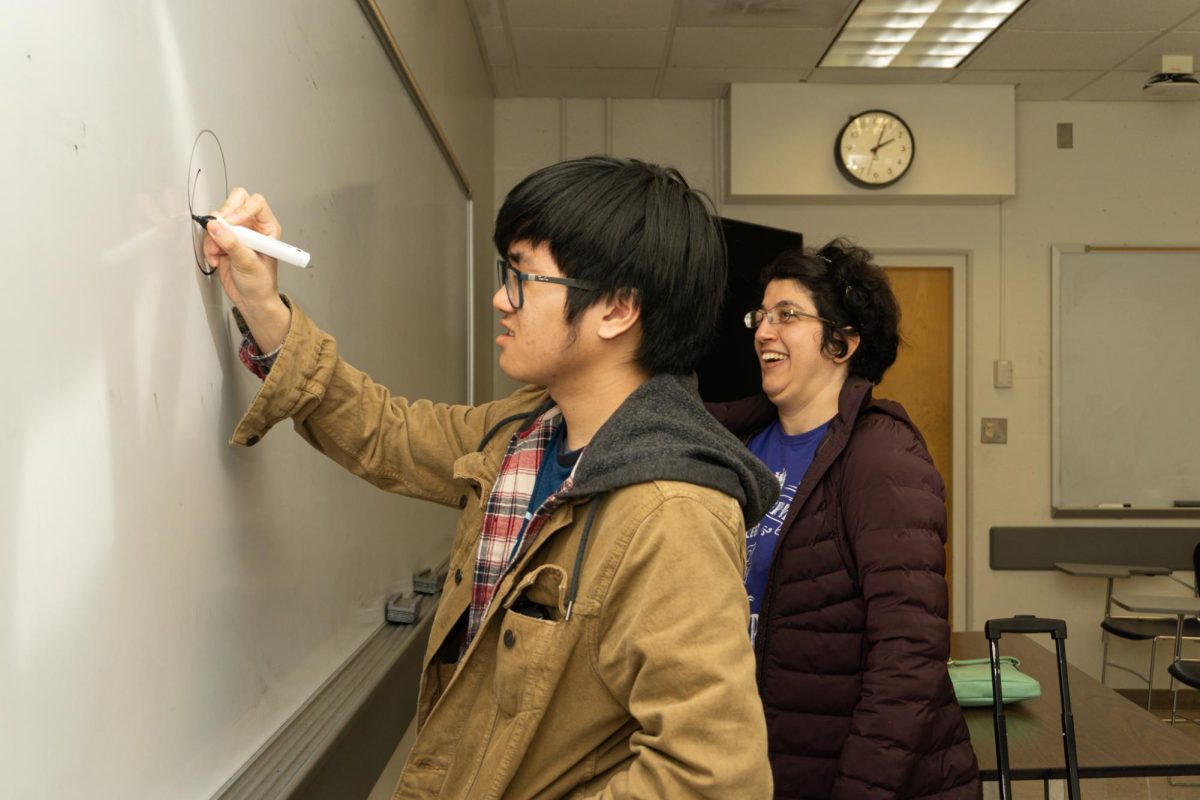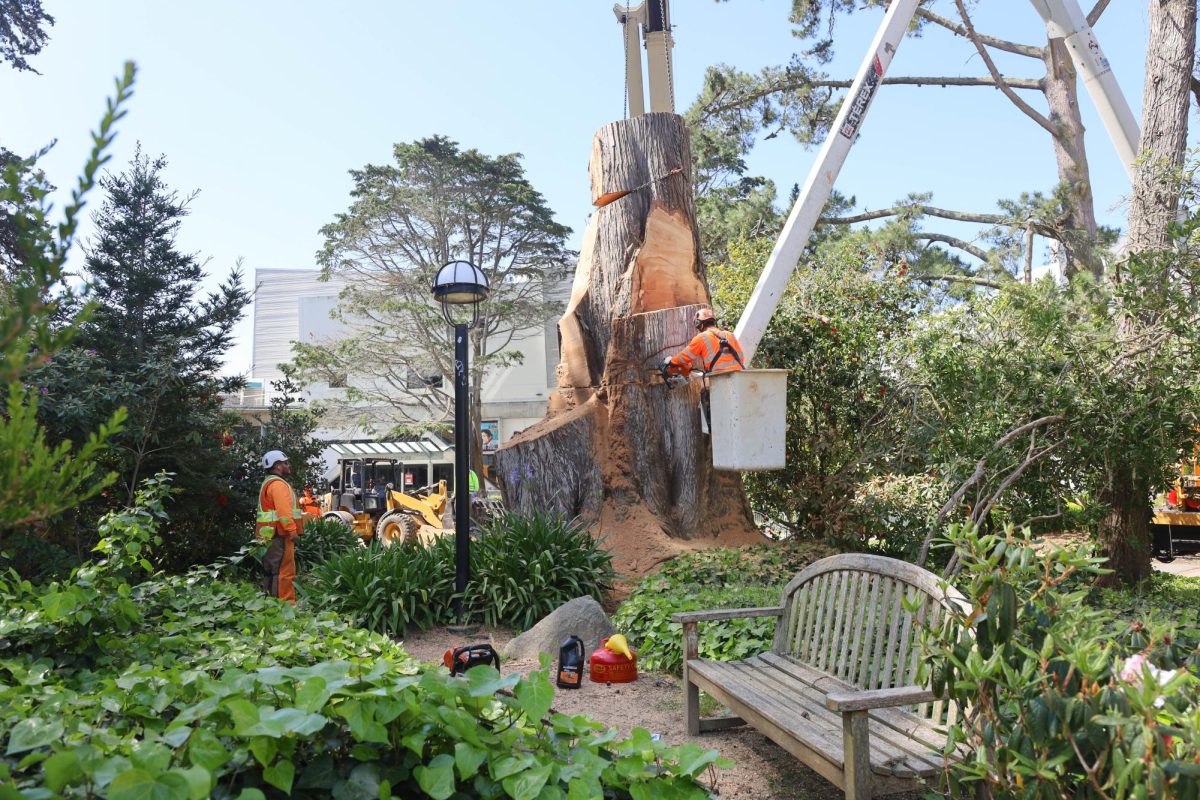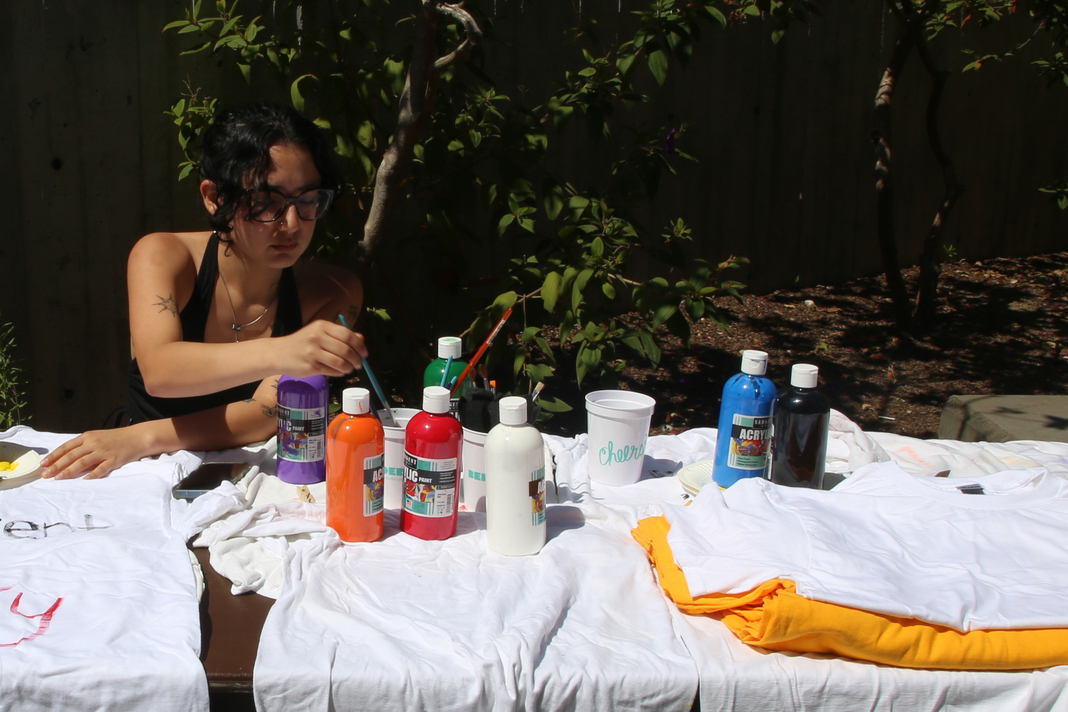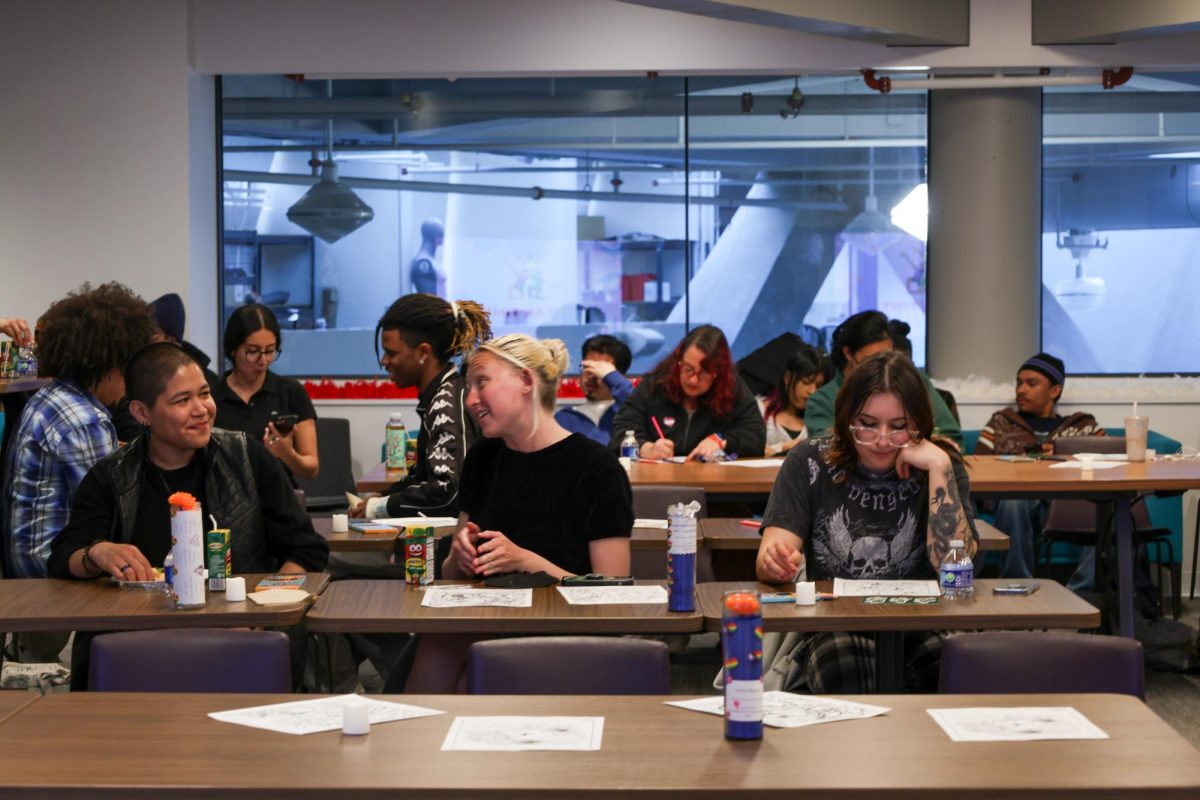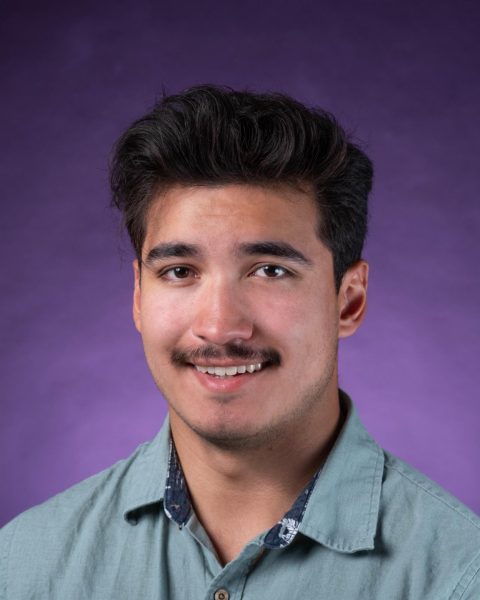San Francisco State University’s Experimental College class, “Diversibility,” is like many others. Using a hands-on approach, the class often engages in activities like hangman or collaborative art on the board.
The difference?
These activities must be conducted without access to either sight, hearing or the use of one hand.
Fourth-year music student Masha Aleskovski established the class in Spring 2023 in an effort to create an atmosphere where nondisabled students could get a small experience of what it’s like to have a disability.
“My class teaches what it’s like to be disabled,” Aleskovski said. “People will understand where disabled people come from, treat them with respect, and understand where they’re coming from.”
Being disabled herself, Aleskovski brainstormed with her mom the concept of a class where she could highlight the experiences of disabled people.
Aleskovski’s overall experience as a disabled student on campus has been positive. She explained how the Disabilities Programs and Resource Center have fulfilled her accommodations. Specifically, the cart system has made moving around campus easier since she lives in University Park South, which is further from the main campus.
She does, however, think the school lacks human readers.
“I have a visual impairment, so I read slowly and get tired more easily,” Aleskovski said.
While the DPRC does offer a service that reads aloud, Aleskovski notes that it uses a robotic voice, which makes it difficult to concentrate. Having a human reader included in the existing note-taking program, the DPRC offers would be the ideal scenario for her.
A human reader would read and interpret material for the student who requested the accommodation. This would accommodate students who find the robotic voice ineffective for their productivity and give a more human touch to the program.
The class was merely a concept until a friend of Aleskovski, a fellow EXCO teacher, helped motivate Aleskovski to develop the idea further.
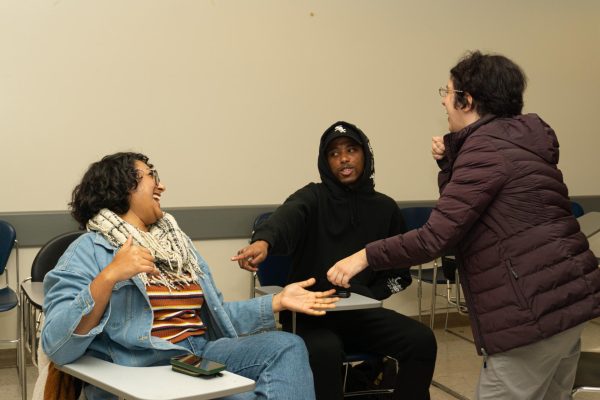
“Diversibility” is described as a course involving workshops and activities like tasting, cooking, doing art and playing games. Aleskovski wanted to take a hands-on approach to her workshops and incorporate some of her likings and passions into the class.
As a music major, Aleskovski has taken her students on “field trips” to the Creative Arts building, where she has taught them how to play the piano with one hand. Aleskovski takes inspiration from her training in piano and the harp to combine her passion with her advocacy.
Sabrena Jefri-Tan, a fourth-year psychology major, describes her experience in the class as positive and enjoys getting to know Aleskovski better.
“I’ve learned that people with disabilities, depending on their disabilities, really have to be creative and innovative with how they perform certain tasks. And I think that is very commendable and courageous,” Jefri-Tan said.
The most recent class on Feb. 13 consisted of four different workshops for Aleskovski’s students to complete.
In the first workshop, students went up to the board and drew three figures with their eyes closed to the best of their ability. While some drew simple figures like hearts and peace signs, others tried to draw things with more complicated elements, like teddy bears and sneakers. As the students opened their eyes, they laughed and admitted the difficult nature of the activity.
The second workshop took a step further by dividing the class into pairs. One student drew a picture on the board with their eyes closed as their partner guided them with verbal instructions. With more guidance than the first activity, the pairs needed a solid line of communication to make their drawing come out as intended.
“We know about people that have limitations and disabilities, but to actually do some of the experiments that we’ve been doing, we kind of actually see like ‘oh man, this is something else’ when we don’t even have the degree of disability they have, just a small glimpse,” said fourth-year communications major Daniel Couch.
The next workshop took up the most time — silent hangman. While maintaining its structural integrity, the game changed when the ability to speak was removed. This pushed the students to think up more creative solutions. While Couch would physically act out mannerisms, fourth-year cinema student Ren Nocon created a key on the board to translate hand gestures into a letter.
This is Nocon’s second time taking the class.
Nocon found the class while browsing the course catalog and was drawn to the description of “Diversibility.”
“It was nice getting to know the people involved, getting to know the teacher, and getting to know the students because with the smaller class, the benefits of that, you feel closer to the people there,” Nocon said. “I think the big takeaway is how life is for people with these disabilities. You have to understand. Understanding is like a key part of life,” Nocon said. “It builds empathy.”





